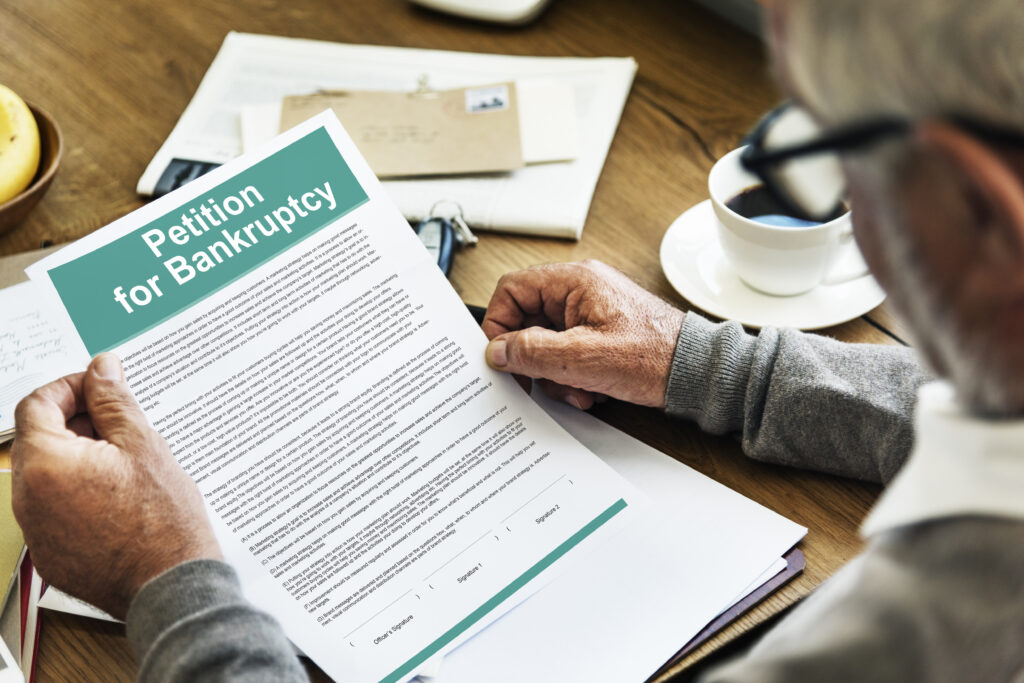Introduction
Financial hardships can strike anyone at any time. And when they do, it’s essential to understand the available options for debt relief. Bankruptcy is often viewed as a last resort. But it can provide a fresh start for individuals drowning in overwhelming debt. In this article, we will explore the world of bankruptcy and various debt relief options. And Including the ones which can help you make informed decisions when facing financial challenges.
Understanding Bankruptcy

Bankruptcy is a legal process that allows individuals and businesses to eliminate or restructure their debts. And while under the supervision of a court. While being bankrupt should not be taken lightly, it can be a lifeline for those facing insurmountable debt. There are different types of bankruptcy, with the two most common being Chapter 7 and Chapter 13:
- Chapter 7 Bankruptcy: Also known as liquidation bankruptcy, Chapter 7 involves selling non-exempt assets to pay off creditors. Many unsecured debts, such as credit card debt and medical bills, can be discharged in this process. However, not everyone qualifies for Chapter 7, as it requires meeting specific income criteria.
- Chapter 13 Bankruptcy: Chapter 13 bankruptcy is a reorganization plan that allows individuals to repay their debts over a period of three to five years. It is typically suitable for those with a regular income who want to protect their assets while working on a repayment plan.
Debt Relief Alternatives

Before considering bankruptcy, it’s essential to explore other debt relief options. Which may offer less severe consequences for your financial future:
- Debt Consolidation: Debt consolidation involves combining multiple debts into a single loan with a lower interest rate. This can make monthly payments more manageable, but it doesn’t reduce the total amount owed.
- Debt Settlement: Debt settlement involves negotiating with creditors to lower the total amount you owe, often by agreeing to a lump-sum payment. While this can reduce your debt, it may negatively impact your credit score.
- Credit Counseling: Credit counseling agencies provide financial education and help you create a budget and repayment plan. They can also negotiate lower interest rates with creditors, making payments more manageable.
- Debt Management Plans (DMPs): DMPs are structured repayment plans developed by credit counseling agencies. These plans consolidate your debts and may lower interest rates, making it easier to pay off what you owe over time.
- Budgeting and Financial Education: Sometimes, improving your financial literacy and budgeting skills can help you manage your debts better and avoid bankruptcy altogether.
Factors to Consider

When deciding whether being bankrupt is the right option for you, consider the following factors:
- Debt Type: Bankruptcy is most effective for unsecured debts like credit card bills, medical expenses, and personal loans. If your debts are primarily secured, such as a mortgage or car loan, bankruptcy may not be the best solution.
- Income and Assets: Your income and assets play a crucial role in determining your eligibility for bankruptcy and which chapter you can file under. An experienced bankruptcy attorney can help you understand your options.
- Long-Term Goals: Think about your long-term financial goals. Bankruptcy can have a significant impact on your credit score and financial future, so consider whether it aligns with your goals.
- Legal Advice: Consult with a bankruptcy attorney to assess your specific situation. They can provide guidance on the best course of action and help you navigate the complex legal process.
Conclusion
Bankruptcy should be a last resort, after exploring all other debt relief options . While it can provide a fresh start for those buried in debt. But it also has significant consequences for your credit and financial future. If you find yourself facing financial challenges, it’s essential to seek professional guidance. Which can be from a credit counselor or bankruptcy attorney. So as to make an informed decision about the path that’s right for you. Remember that there are alternatives to being bankkrupt that may be more suitable for your situation. So explore all your options before making a choice.
Disclaimer: The information provided in this blog is for educational purposes only and not a financial advice. Every individual’s financial situation is unique; consider consulting with a professional for personalized advice.
To read more, click here
Thank You For Reading, feel free to ask any questions in the comment section below.
Follow us on Social Media Platforms,
Click Here: Instagram, Facebook, YouTube, and Twitter
Stay Informed, Stay Responsible with My Finance World!










